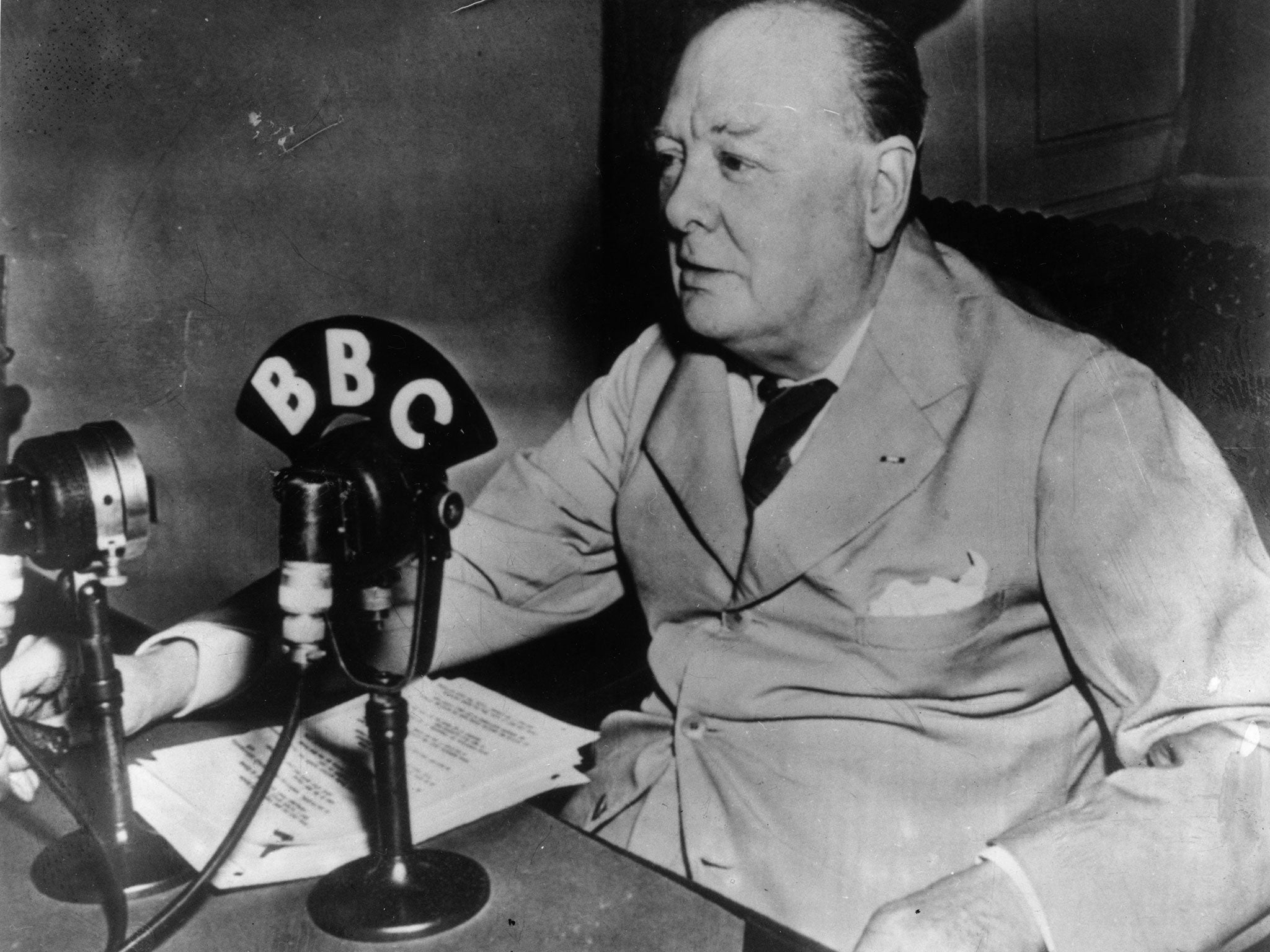Winston Churchill's letters and speeches given UNESCO heritage status
Churchill joins the Magna Carta and the Bayeux Tapestry on a UN list of humanity’s most important records

The canon of Winston Churchill’s speeches and writings is to join the Magna Carta and the Bayeux Tapestry on a United Nation’s list of humanity’s most important records.
The vast archive of the former prime minister’s papers, including his wartime speeches, has been added to the International Memory of the World Register run by UNESCO to highlight the importance of the world’s historic documents.
The Churchill Papers, which are held at the Cambridge University college named after the politician once voted the greatest-ever Briton, chronicle the development of his most famous speeches as well as his voluminous correspondence with figures from Joseph Stalin to Laurence Olivier.
The archive joins more than 450 other collections and items on the UNESCO register, which includes material ranging from the world’s first comprehensive census in Iceland in 1703 to Bach’s handwritten score for his Mass in B Minor.
Established 20 years ago, the register aims to safeguard records from public and private collections across the world by categorising the most valued archives and helping to preserve documents where they are at risk of damage or dispersal.
The Churchill Papers, kept in a state-of-the-art archive, contain more than a million separate items charting the life of Britain’s wartime leader from a letter home to his mother written at the age of seven to a seating plan from the Potsdam Conference to decide the shape of the post-war world signed by Stalin and US President Harry Truman.
Allen Packwood, director of the Churchill Archives Centre at Churchill College, said: “The archive of Sir Winston Churchill is unique and irreplaceable. It is the evidence that underpins the story of one of the most remarkable leaders of the modern era, whose stand against fascism in 1940 helped shape the world of today.”
The documents recognised by UNESCO, the UN body dedicated to promoting education, culture and science, include papers that show the drafting of Churchill’s “finest hour” speech, written in 1940 to steel Britain as it stood alone against the Nazi onslaught following the surrender of France.
The annotated copies of the speech include the final version typed out in a similar style to that of a poem, allowing Churchill to deliver his words with his trademark deliberation and ponderous diction.
Mr Packwood said: “The page is covered with his handwritten annotations in red and blue ink. It highlights how much care and attention Churchill put into this speech. He knew how much was riding on this.
“As you move from first draft to finished speaking notes the speech undergoes a transformation. The final note is set out in a blank verse format, like the Book of Psalms. It looks like poetry, it brings it to life, it gives him, I think, the rhythm; it enables the great Churchill oratory.”
The collection, which includes the post-war speech where Churchill coined the phrase “iron curtain” to describe Communist domination of Eastern Europe, also contains the former Prime Minister’s letters to a broad sweep of the movers and shakers of the 20th Century.
As well as his missives to three US presidents - Roosevelt, Truman and Eisenhower - the archive holds correspondence with Charles De Gaulle, Gandhi, Nehru and writers, painters and actors including HG Wells, Walter Sickert and Olivier.
The archive will now sit alongside some of humankind’s most remarkable and idiosyncratic written or pictorial records, ranging from the Book of Kells to the 1886 Mercedes Benz patent for the combustion engine, and the epic Persian poem the Shahnameh to the negative of Fritz Lang’s Metropolis.
British documents already on the UNESCO list include the First World War diary of Field Marshal Douglas Haig, the 19th-Century membership records of the Institution of Civil Engineers and a registry of slaves from British-owned islands in the Caribbean.
What’s in the Churchill Papers?
Letter to “Mamma” - 1882
The earliest surviving letter written by Churchill was to his mother. Aged seven, he wrote in 1882 to thank her for presents of “soldiers, flag and castle”. He ends the letter with “great many kisses”.
Bravery during the Boer War - 1899
The archive contains a report from a Captain Aylmer Haldane praising Churchill’s actions as the armoured train on which he was travelling was attacked in 1899. Haldan praised Churchill’s actions in saving the engine: “He was frequently exposed to the full fire of the enemy. I cannot speak too highly of his gallant conduct.”
“Finest Hour” - 1940
Delivered in the House of Commons in June 1940, this is considered one of Churchill’s most important wartime speeches as he exhorted Britons to face the reality that they stood alone against Hitler’s Germany. As was his habit, Churchill continued to edit the speech up to - and including - its delivery.
Letter from “Clemie” - 1940
Barely a week after Churchill delivered his “Finest Hour” speech, he received an extraordinary letter from his wife, Clementine rebuking him for his “rough sarcastic and overbearing manner” with his colleagues and subordinates. Clemie noted that while he was under considerable strain, she had noticed a “deterioration in your manner” and suggested he needed to show “urbanity, kindness and if possible Olympic calm”. She added: “Besides you won't get the best results by irascibility and rudeness.”
Subscribe to Independent Premium to bookmark this article
Want to bookmark your favourite articles and stories to read or reference later? Start your Independent Premium subscription today.

Join our commenting forum
Join thought-provoking conversations, follow other Independent readers and see their replies